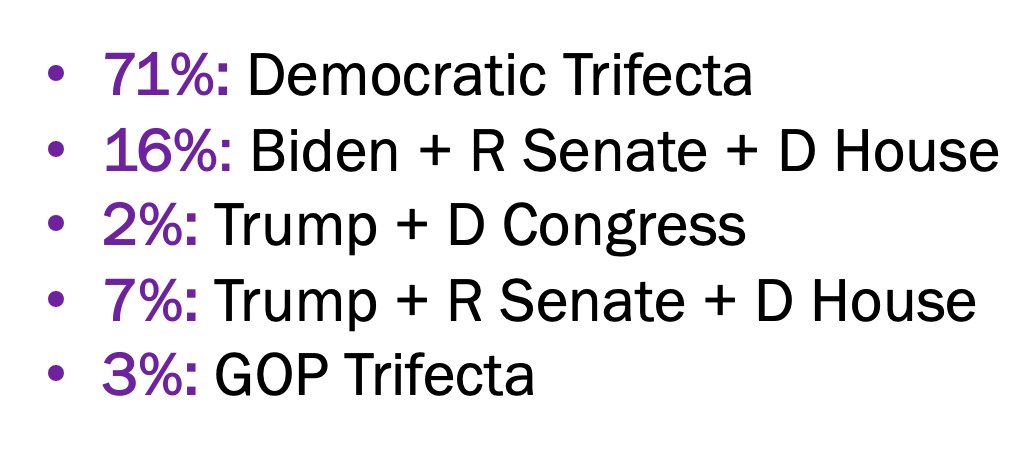We're in the final stretch, and not much would change the outcome of the election at this point. Looking at historical elections and the contextual fundamentals and polling, a candidate in Biden's position would win approximately 90% ± 5% of the time. He leads in the RCP averages for states totaling 311 electoral votes, and in the 538 snake he is at least the very slight favorite in states with 351 electoral votes.
But we don't know what we don't know. In 2016, polling was off due to pollsters not properly weighting by education. Voters with greater education tend to respond to pollsters with greater frequency than those with less education, and they also tended to favor Clinton in 2016. Many pollsters have corrected for that, but there could be another miscalibration in this cycle also.
We can post polls, articles, and analyses that are favorable to our preferred candidate, but that isn't going to change what happens by November 3rd. Hopefully, there will be a clear victor on election night.
Ultimately, I think we're all ready for this election to be over and to move on with our lives, one way or the other.
Edit:
I'd like to add an analogy. Consider a bag containing three coins: one standard, one with heads on both sides, and one with tails on both sides. You pick a coin at random from the bag and flip it once. If it comes up heads, you're 2/3 * 1 + 1/3 * .5 = 83% likely to get heads on the second flip. Same thing if it comes up tails on the first flip: 83% likely to get tails on the second flip. In each case, that first flip is like a poll. Based on our knowledge of what's in the bag, that first flip (polling) actually gives us some information about what the outcome of second flip (the election) will be. But, there is still uncertainty. We're either in the situation with the fair coin, or the situation with the trick coin. But, we don't actually know for sure which situation we're in. The probabilities relate to our own perceptions/understanding, and don't actually apply to the coin (or election) itself.




